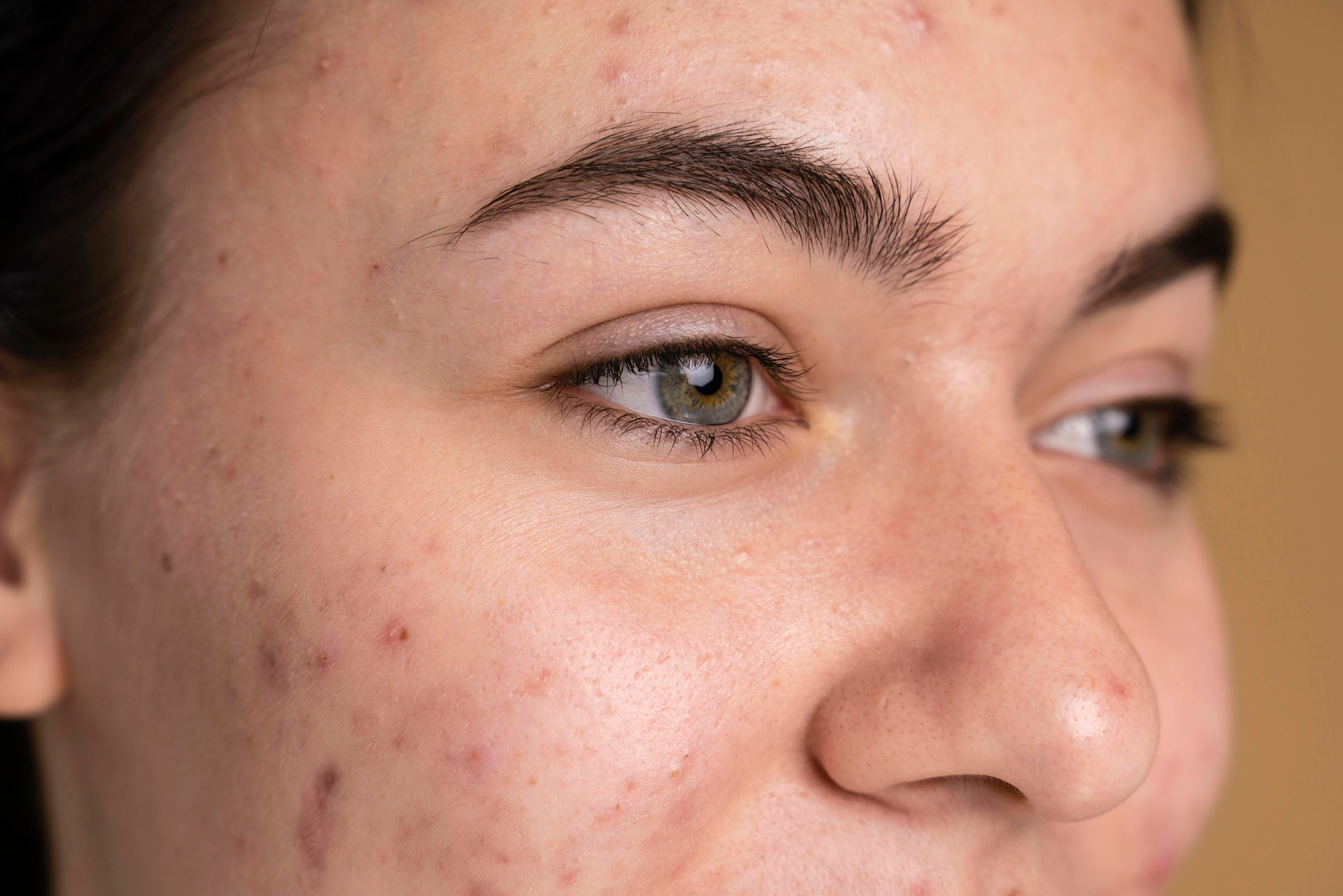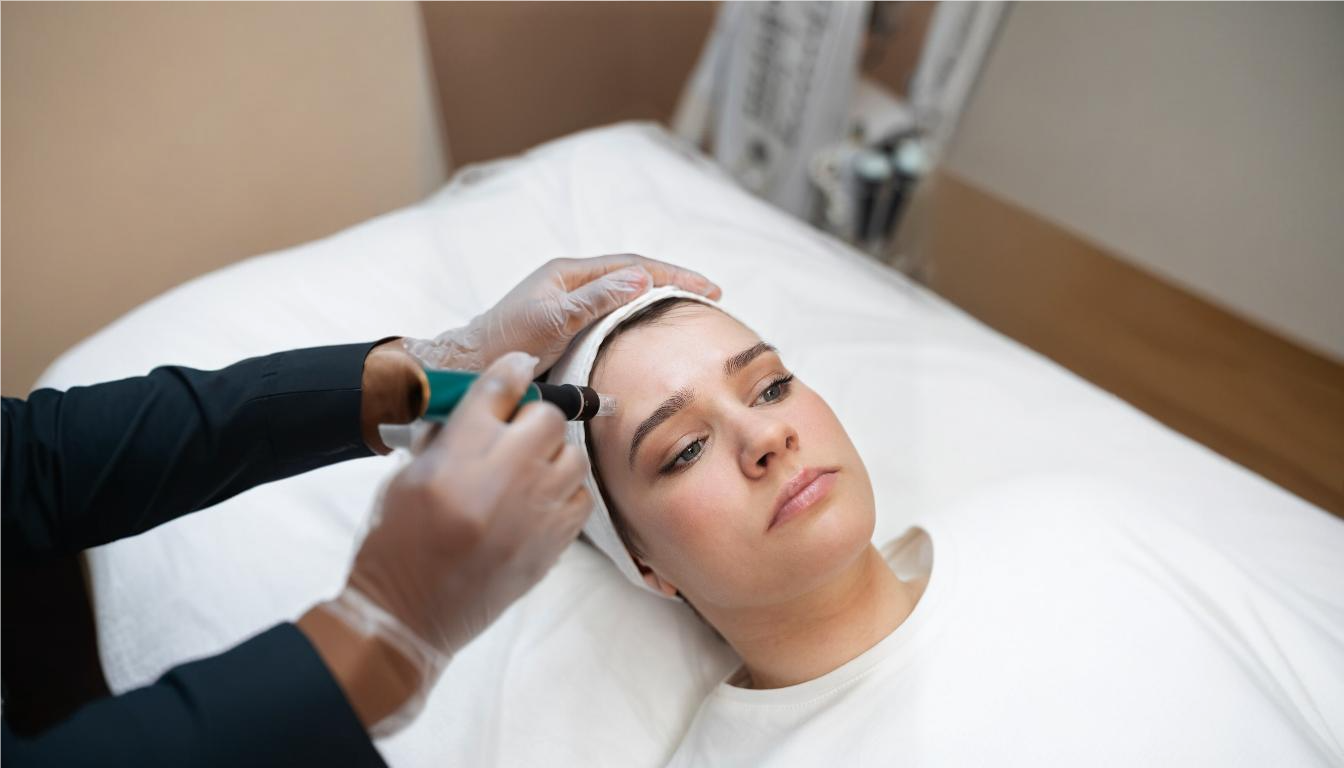5 Effective Home Remedies for Dark Spots on Face

Dark spots on the face, also known as hyperpigmentation, are a common skincare concern for many. While they are harmless, these spots can impact your confidence. The good news? There are ways to address them with simple home remedies. In this article, we’ll explore the causes of dark spots, effective at-home treatments, and common myths about natural remedies.
Causes of Facial Dark Spots
Understanding what causes dark spots can help you prevent them in the future. Here are some of the most common reasons:
1. Sun Exposure
Excess sun exposure is one of the leading causes of dark spots due to overproduction of melanin in response to UV rays. Practicing sun damage prevention is crucial for avoiding pigmentation.
2. Hormonal Changes
Changes in hormone levels, such as during pregnancy or with the use of birth control, can trigger melasma or dark spots. Learn more about how hormonal changes affect your skin.
3. Aging
As we age, our skin becomes more prone to pigmentation issues due to years of accumulated sun exposure and other factors. Read more about the causes of premature aging.
4. Improper Skincare Practices
Harsh products, skipping sunscreen, or not removing makeup properly can contribute to dark spots or worsen existing pigmentation.
At-Home Treatment for Pigmentation
Here are five effective remedies you can try at home to reduce dark spots naturally:
1. Honey and Milk Masks
Honey’s antibacterial properties and milk’s lactic acid can help brighten the skin and reduce pigmentation over time. Apply a mixture of honey and milk to your face, leave it on for 15 minutes, and rinse off.
2. Licorice Extract
Licorice contains glabridin, a natural compound that helps lighten pigmentation and soothe the skin. Apply a serum or cream containing licorice extract to impacted areas.
3. Vitamin C

Vitamin C is a powerful antioxidant that can brighten skin and fade dark spots by reducing melanin production. Use a serum with stable Vitamin C for best results.
4. Kojic Acid
Derived from fermented rice or mushrooms, kojic acid is a popular natural ingredient that lightens hyperpigmentation. It’s found in many pigmentation treatment products.
5. Sunscreen

The most important step in treating and preventing dark spots is daily sunscreen use. Opt for a broad-spectrum sunscreen with SPF 30 or higher to protect against further sun damage.
Common Misconceptions About Home Remedies for Facial Pigmentation
Home remedies often sound like quick fixes, but not all claims hold true. Let’s clear up some common myths.
Skin Pigmentation Home Remedies Myths vs. Facts
Myth 1: Lemon Juice Can Erase Pigmentation
Fact: While lemon juice is rich in Vitamin C, its acidity can irritate your skin and cause more pigmentation if overused or exposed to sunlight.
Myth 2: Turmeric Instantly Clears Dark Spots
Fact: Turmeric can help brighten the skin with consistent use, but it won’t deliver immediate results.
Myth 3: DIY Scrubs Eliminate Pigmentation
Fact: Harsh scrubbing can damage the skin barrier and make pigmentation worse.
Myth 4: Natural Oils Lighten Pigmentation
Fact: Oils like coconut or olive oil don’t have proven effects on pigmentation and might clog pores instead.
Myth 5: Apple Cider Vinegar Can Fade Spots Quickly
Fact: ACV is often recommended, but improper use can lead to skin burns or irritation.
Myth 6: Aloe Vera Eliminates Pigmentation Entirely
Fact: Aloe vera can help soothe the skin, but it’s unlikely to erase dark spots completely.
Myth 7: Baking Soda Lightens Dark Spots
Fact: Baking soda is too abrasive for facial skin and can cause irritation, potentially worsening spots.
Myth 8: Home Remedies Are Safer Than Professional Treatments
Fact: While home remedies can help, professional treatments are more targeted and often more effective for stubborn pigmentation.
Bottomline: Do Home Remedies for Skin Pigmentation Work?
Home remedies can be a gentle and natural way to address mild pigmentation and improve overall skin health. Ingredients like aloe vera, turmeric, and lemon juice are often praised for their brightening properties, and with consistent use, they may help reduce the appearance of uneven skin tone. However, these remedies typically take time to show noticeable results and may not be effective for more severe dark spots or pigmentation caused by underlying skin conditions, such as melasma or post-inflammatory hyperpigmentation. In such cases, it's best to consult a dermatologist for professional treatments tailored to your skin's needs.
When to Consider Professional Help for Pigmentation
If your dark spots persist or worsen despite trying home remedies, it may be time to explore professional options like chemical peels, laser treatments, or medical-grade pigmentation treatment.
Say Goodbye to Dark Spots with Proven Professional Care
Dark spots don’t have to be a permanent concern. While home remedies can be a great starting point, professional care and preventative measures like sun damage treatment can provide faster and more reliable results. Whether you stick to DIY solutions or seek expert help, consistency is key to achieving clear, radiant skin.
- Tags: pigmentation uneven skin
0 comments

